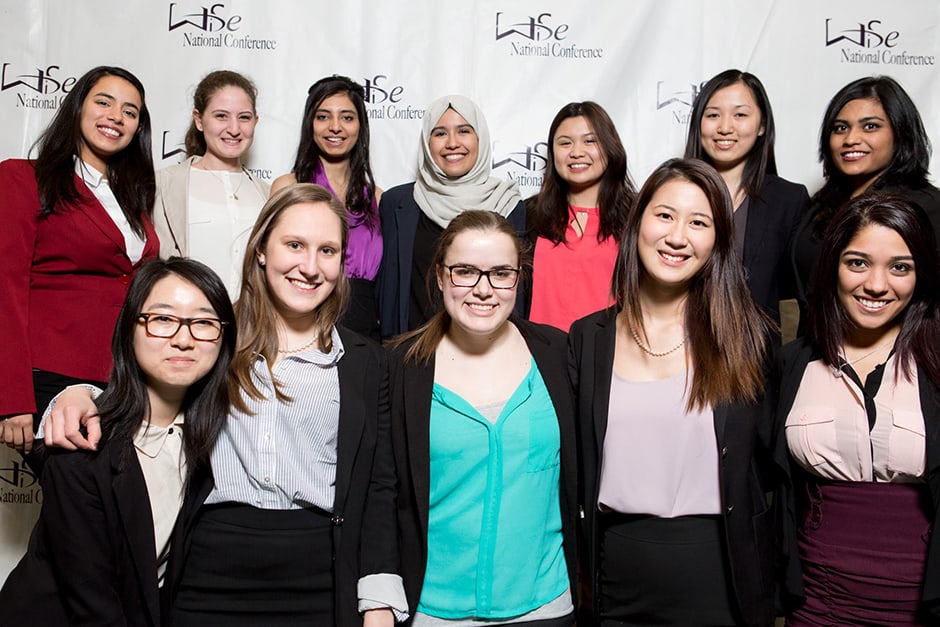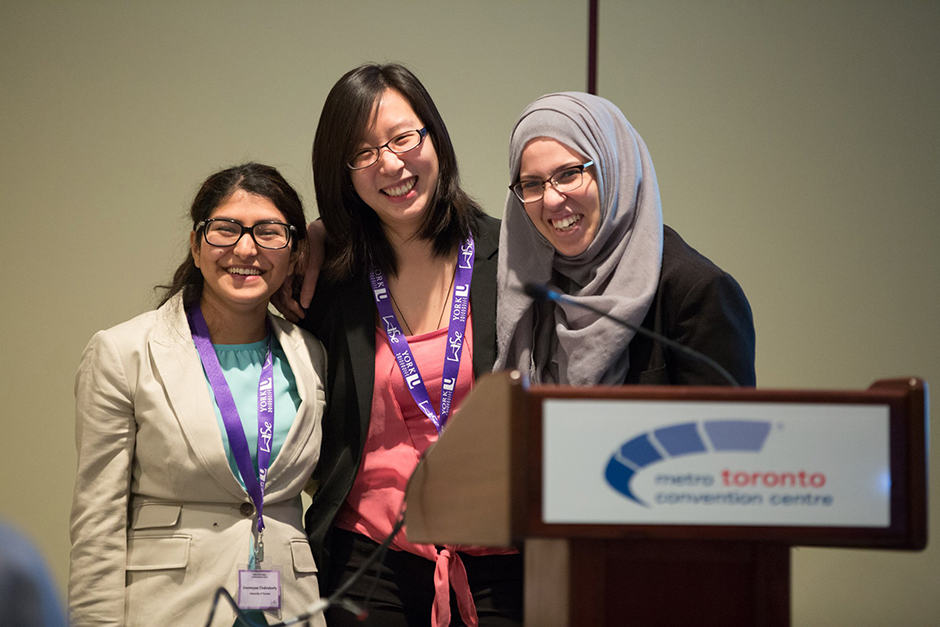Last weekend Toronto hosted the third annual Women in Science and Engineering (WISE) national conference. Held at the Toronto Metro Convention Centre, the conference aimed to bring together women pursuing science and technology degrees in order to network, attend lectures and workshops, compete in a poster competition, and gather tips and tricks on how to succeed as a woman in her chosen scientific field.
The conference was attended by women and men (with a ratio of about 9:10 respectively) alike from universities all across Ontario. From the 200, or so, students at the conference, many of them appeared to be undergraduates, and there was a general atmosphere of excitement throughout the event.
However, the moment the organizers of the conference, president of WISE U of T Megan Steeves and chair of the conference Mahsa Nami, got on stage to announce the first speaker, the tone immediately became attentive.
The conference began with a speech from keynote speaker Dr. Aarthi Ashok, an associate professor in the department of Biological Sciences at U of T Scarborough, who is the recipient of both the NIH Fellow’s Award for Research Excellence and the 2014 Principal’s Faculty Teaching Award at UTSC. The theme of this year’s conference was “build your own legacy,” and in her hour-long talk, Ashok discussed her own educational and professional background, bringing up examples of gender discrimination that she has faced, and outlining the lessons she has learned about the best way for a woman to succeed in the sciences.
Ashok continually stressed the importance of seeking out communication, reflecting on one’s strengths and interests, and finding good mentors. Presenting a slide with photographs of all the scientific mentors that she has had throughout her career, she pointed out that among them all, there has only been one woman.
“This one slide alone should be an ad for the reason that we need more women in science and engineering, and especially in roles where they are mentoring future scientists and budding scientists,” she said.
She also discussed the importance of persevering, and the difficulty and demoralization that young students of science can face. “Perseverance is to me… looking towards your future goal and staying steadfast on that path,” she said, adding, “There are going to be naysayers, there are going to be enough people out there that are going to tell you [that] the economy’s terrible, you’re never going to find a job, your area that you’ve been working on is too abstract, there’s no practical applicability to it.”
“I always resort to a kind of a piece advice that my parents gave me, which is ‘there’s always jobs for people who are in the top five per cent of what you do, and to be in the top five per cent of what you do you need to be absolutely one hundred per cent passionate about what it is that you’re doing,’” Ashok continued, “Because if you love what you’re doing you’re going to be brilliant at it.”
Ashok also made a point of explaining how these struggles can be even more impeding for women. “Sometimes and especially for women perseverance means pushing up against certain stereotypes and biases,” she stated, “and these exist.”
As well as additional lectures from other women who are acclaimed professional scientists, such as Diane Freeman from the Fellow of Engineers Canada, and Dr. Cynthia Goh from the Department of Chemistry, the Institute of Medical Science, and the Impact Centre at the University of Toronto, the conference had workshops and panels aimed specifically at teaching young women what they can do with their science degrees.
The panel on start-ups particularly generated a lot of interest among the attendees. Panelists included Lauren Friese, founder of TalentEgg.ca, and Emilie Cushman, named HSB Women Leader of Tomorrow and one of Canada’s Top 100 Most Powerful Women by the Women’s Executive Network. After introducing themselves, the panelists spent over an hour answering questions from ambitious students, all seeking the best advice from the panelists on how to start their own businesses.
Although talent, drive and passion were clearly present in abundance at the conference, the focus of the young scientists present appeared to be directed towards making their many career ambitions a reality and less on discussing gender inequalities that are still prevalent throughout the sciences.



